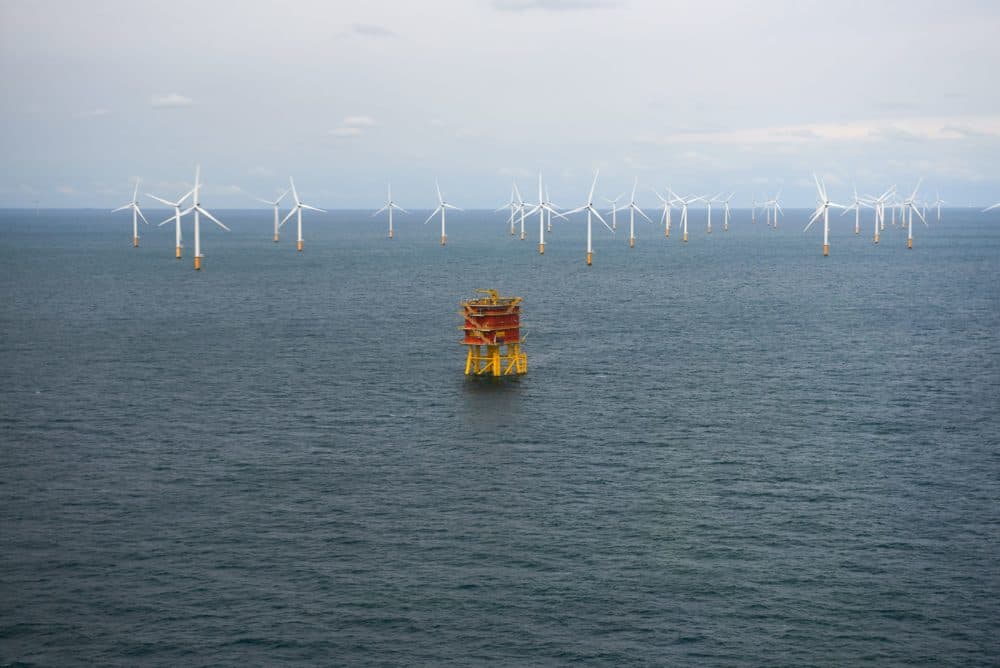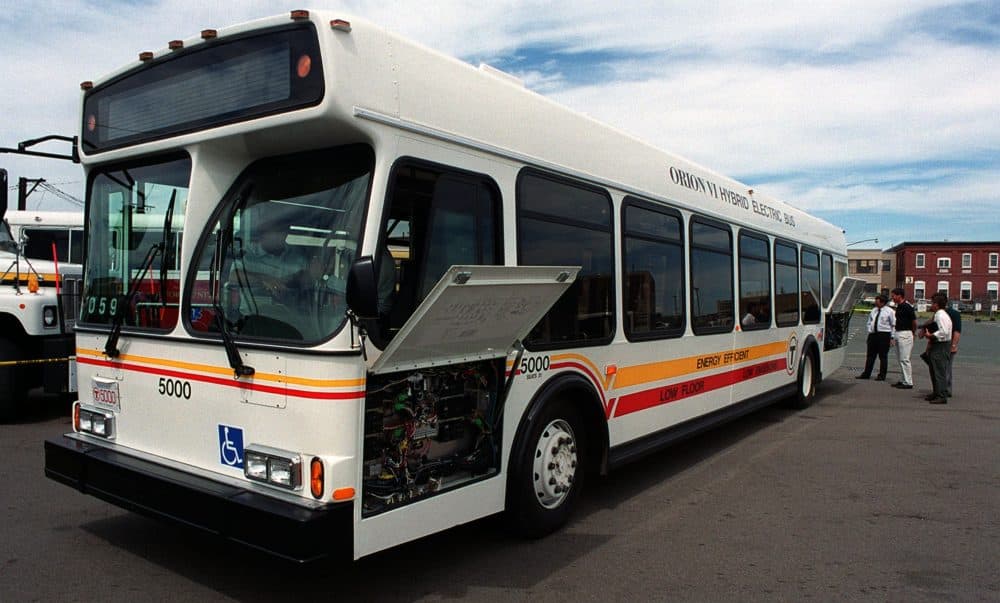Advertisement
Commentary
After The Pandemic, Mass. Can Build A Climate-Smart Recovery

A few of my friends have told me recently that they yearn for a time machine to transport them to the future -- and beyond the pandemic. I want one, too. But I'd like to jump ahead and see how we’ve learned and acted to address the compounding crises we face today.
My hope would be that we have built a world that is more just, equitable and sustainable.
Just imagine an economic recovery that creates inclusive economic growth while taking an enormous bite out of pollution — one so big, that achieving the state’s new net-zero emissions reduction goal is viable, not just visionary.
Imagine Boston thoroughfares being open only to pedestrians and bicyclists and city squares catering to outdoor diners. Imagine frequent, clean-fuel buses running through underserved neighborhoods improving air quality at last. And, a sustainable, high-speed rail system connecting communities across the commonwealth.
Imagine more roadways lined with wind turbines, solar arrays, electric vehicle (EV) charging stations and the thousands of new jobs that would come with them.

Now is the time to take stock of what’s wrong in the world and act boldly.
Here is what we face:
A deadly pandemic disproportionately impacting the most vulnerable and communities of color. More than 40 million Americans out of work. A global economy in a spiraling downturn. Corporate supply chains in upheaval. A country in political turmoil, undergoing a reckoning on race. And the looming threat of a long-lasting and more damaging climate crisis.
So how do we build a more just, equitable and sustainable world? We have an opportunity to address economic stress and social issues through a climate-smart recovery.
Worldwide, more than $10 trillion has been allocated to kick-start economies, including more than $2.3 trillion in the U.S. and $2.6 billion here in Massachusetts, and that figure will surely get bigger. To put this into context: the $2.3 trillion the U.S. has already set aside — with more likely to come --is easily double what it spent in response to the 2009 financial crisis. This staggering amount of money can bring about extensive long-lasting changes in the structure of our economies.
Advertisement
If policymakers opt for status quo spending, carbon emissions that have been declining in recent months will resume their upward potentially catastrophic trajectory.
A far better path is to “build back better” with a recovery that targets strong environmental and social outcomes, while producing the same economic growth and jobs. One way to ensure this is to prioritize programs and policies that align with Massachusetts’ recent commitment to reach net-zero emissions by 2050 and make systematic changes across key sectors including energy and transportation. From offshore wind development and public transportation to electric vehicle and bicycle and pedestrian infrastructure, we have an opportunity to leverage federal funds and direct state resources to the most impactful investments and put people to work.
A far better path is to “build back better” with a recovery that targets strong environmental and social outcomes, while producing the same economic growth and jobs.
Massachusetts is already starting to move in this direction, although not fast enough. The state’s ambitious climate programs have helped create about 120,000 jobs in clean energy industries while adding nearly $14 billion to the state gross domestic product. With a new net-zero emissions goal, the state legislature must move quickly to codify that target and prioritize new recovery efforts to bring us closer to that goal. Deploying zero-carbon energy, such as offshore wind, would be a strong start and create jobs in the process.
But much more needs to be done to ensure systemic changes come.
In a letter to Gov. Charlie Baker, Ceres, the organization I run, called for continued support for energy efficiency programs, clean energy and the Transportation and Climate Initiative (TCI). TCI, in particular, would put a price on carbon and distribute the proceeds to participating states to support electric vehicle incentives, public transit and other clean transportation efforts. The initiative is backed by the business community and is the type of regional collaboration that can lead the way in the absence of federal action.
In regard to transportation investments, the state should consider an expansion of the successful MOR-EV program and provide incentives for zero-emission vehicles. Reallocating Massachusetts Bay Transportation Authority (MBTA) resources to boost bus runs in underserved areas with more clean-fuel buses should also be a priority. We should also support the shift towards more biking and walking lanes while improving mass-transit and along key arteries and in underserved communities.

Finally, policymakers must continue to uphold environmental and labor regulations that protect the health and well-being of our communities. The potential costs of regulation and enforcement do not outweigh the public health and environmental benefits. And we must enforce state labor protections, healthcare access and provide equitable unemployment support. Company commitments to protect human rights rely on strong state enforcement, especially in times of economic distress.
We know that the majority of Americans support larger investments in renewable energy, smart grids and other green solutions, too. And the businesses we work with in Massachusetts and across the U.S. are also echoing our calls for action. In May, in a daylong digital blitz to more than 85 U.S. congressional offices, 330 businesses participated in LEAD on Climate 2020. It was the largest business-led advocacy day for climate action in U.S. history.
Whether federal policymakers will listen and embrace a clean economy future isn’t clear. Like most environmental and social issues these days, states may need to lead the way. Massachusetts, long a leader in tackling climate change, has a chance to lead the nation on a just and sustainable, climate-smart economic recovery. And we hope it will.
